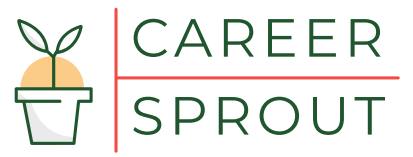When someone comes to us, it’s usually for a one of a few reasons.
They don’t know where they should take their career.
They know where to take their career, but they don’t know how to get there.
Or
They’ve felt lost and bounced from one company to another doing things that really didn’t support their growth and life goals.
Sometimes they’ve worked at one company for SO long but they can’t get to the next senior role where they’re making $200k-$500k+.
All of these things lead to discouragment and disengaged work.
So we use some combination of these frameworks to help them build a crystal clear career roadmap.
Using these frameworks correctly allows you to:
… Avoid feeling lost in your career
… Determine what stage of your career you’re in today
… Get clarity on where you want to take your career (the destination)
… Figure out the best path there (the roadmap)
… Identify the right ‘next step’ based on the stage of your career you’re currently in
Framework 1: Career-Progression Lifecycle
If you’ve ever seen someone in their 50-60’s managed by a 30-something…
It’s usually because that older person didn’t progress through their lifecycle.
Stage 1: Learning (~$100k)
Here you don’t care about your title or salary as much.
You’re in your 20’s and you’re focused on learning and racking up achievements.
Most people make it out of this stage reletively easily.
Stage 2: Earning (~$200k)
You’re now capitalizing on everything you just learned.
You’re usually in your 30’s here and moving into early stages of leadership.
These roles are typically Manager, Senior Manager, Director, Senior Director.
Stage 3: Steering (~$300k-$500k+)
Often the most elusive (yet most sought after) stage.
In this stage you’re helping a company move toward their vision and mission.
These roles are typically Senior Director, VP, Senior VP, C-Suite.
Framework 2: The M&M Store
This is how you future-proof your career.
Once you define your destination (your Career Nirvana)…
This destination becomes your guiding force.
This keeps you on track and keeps your career ascending in the right direction.
We simply put your destination into the “Career GPS”.
And we reverse engineer the exact roadmap to get you to your destination.
Framework 3: Small Fish In Big Ocean vs Big Fish In Small Pond
If you’re unclear on what to do next, consider this framework…
When you’re earlier in your career (stage 1), it is more advantageous (in most cases) to work for a bigger organization.
At a bigger organization, you will be expected to get great at 1-2 things while working around talented people.
Additionally, you build a great alumni network.
In the flip side, if you work for an early stage start up, typically you have to wear many many hats.
By the time you’re done working there, you’re not sure what you’re truly good at.
This makes it very hard to write your resume or determine the next steps in your career.
So first, we like to start at a large company.
If you’re in the mid or later stages in your career, it’s not as advantageous to be a small fish in a big ocean.
By this time in your career, you likely want a bigger comp package with stock options in a leadership role.
In these stages it’s often more advantageous to be a big fish in a small pond.
Of course, there are nuances to each framework.
If you have any questions, feel free to join our Free Coaching Calls each Wednesday at 10am PT / 1pm ET.
